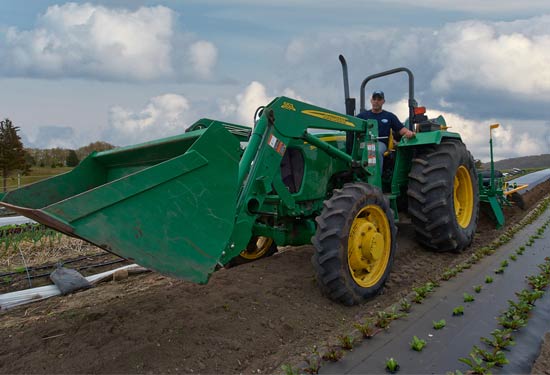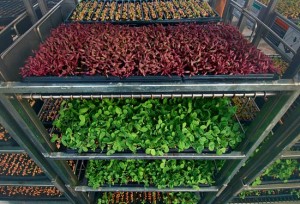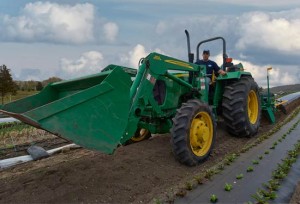Sustainable Farming and Green Techniques and the Community
The Farm to Table mission statement comes full circle with fresh vegetables grown on Perry Raso’s own vegetable farm on Potter Pond in Matunuck, RI. The property was originally owned by Captain John Potter in the 18th century, where a vegetable farm was operated and used for trade.
Today, produce grown includes herbs such as rosemary and sage, salad greens, arugula, spinach, microgreens and Asian greens. Vegetables include carrots, kale, peas, beets, tomatoes, peppers, fennel, broccoli, cucumbers and many more. The vegetable farm is one of the newer elements of the Matunuck Oyster Bar experience, and many of the vegetable farmers are URI horticulture graduates and students. The vegetable farmers use non-chemical, responsible and organic growing techniques. All vegetables are grown directly from seeds.
Some of the highlighted practices include raised beds, row covers, and drip irrigation. During the winter months crops are grown in the greenhouse and under knee-high “low tunnels” which cover the crops for year round growing, supplying the local community with fresh nutritious vegetables through the restaurant and Rhode Island farmers’ markets.
In keeping with his commitment to the local waters and Rhode Island’s natural bounty, Perry Raso and his Matunuck team utilize green initiatives whenever possible. These range from sustainable aquaculture, responsible and non-chemical growing methods on the vegetable farm, to compostable take-home containers for the restaurant. Every year Matunuck Oyster Bar holds an Earth Day Beach Cleanup to clean the shoreline of Potter Pond, East Matunuck Beach and Succotash salt marsh. We believe understanding renewable resources is important, both socially and economically.


